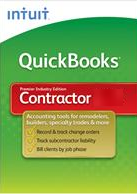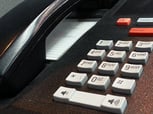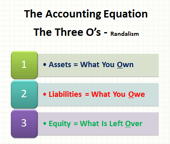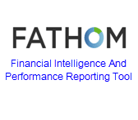While they might get less information from a small business, thieves will easily access it. If your construction company keeps any time-sensitive information on a computer network—personal information, credit card details, or other vital data—you need to ensure your cybersecurity is top-notch so you, your business, and your clients are fully protected.

Here are eight ways to protect yourself from personal and construction business financial fraud.
1. Protect your identity
Getting someone's identity is often the first step to running up enormous charges in their name. Scary as it is, you can go bankrupt if someone opens credit cards using your ID and maxes them out before you know anything has happened.
Shred your mail and dispose of records securely. Dispose of any documents with your name or other information carefully. It may take extra time, but these small steps can save you a world of headaches.
2. Don't click on unknown links
Whether sent to you in an email or via text message – don't click! It's a popular tactic for fraudsters to send a normal-looking link that's harmful. Before you know it, you're freely giving away your information. Just don't do it. Instead, take the extra step to visit a website through its legitimate homepage or call customer service if you suspect a link is a scam.
3. Check your bills
With so many bills offered online, it's easy to forget to review them. Make sure to check your statements for accuracy every month. It's the only way to identify fraudulent charges and correct them.
4. Don't put your personal information online carelessly
Think of this like putting the toothpaste back in the tube – it just can't be done once you've squeezed it out. The same goes for putting your personal information online. Fraudsters can use something as innocuous as your birthdate or workplace to verify your identity and expose you to financial fraud.
5. Never give up information over email or on the phone
The pandemic made us especially susceptible to being taken advantage of because so much was changing at once. Extra government programs were in place, vaccination campaigns were underway, and this administration meant more phone calls, text reminders, and emails.
Trustworthy institutions typically do not ask for your personal information in these ways. If you get a suspicious phone call or email, hang up and call them directly. That extra step can save you a lot of money and stress. It's too easy to fall victim to one of these scams, especially if the caller claims that a loved one is in trouble and needs help – a common tactic these days.
6. Be cautious when shopping online
Fraudsters are getting savvy when it comes to tricking us online. It's not uncommon for a fraudulent website to appear exactly like a legitimate place to shop. Double-check web addresses and question deals that seem good to be true.
Be aware of spelling mistakes or awkward grammar on these websites. They're often a giveaway that it's a lookalike designed to trick you into handing over your information.
7. Check your credit report periodically
If you live in a region where you can get free credit reports that don't harm your credit score, take advantage of this from time to time. It's an excellent way to know if loans have been opened in your name or to be alerted to any other suspicious activity.
8. Set spending limits on your credit and debit cards
Most cards can be set up to alert you of purchases, and you can set the parameters of when that happens. If someone has your credit card information, it's not uncommon for them to run through several smaller purchases as a sort of test to see if you're paying attention. Set up spending alerts so you can stop them in their tracks.
A Note on Construction Bookkeeping Embezzlement/Employee Fraud
Bad Bookkeepers will leave you with unfiled and unpaid taxes. They come from every race, creed, color, gender, and age. There is no definitive profile or absolute way to know which contractor bookkeeper is an embezzler until they have been caught and convicted, and even then, if you do not perform extensive background checks, you may never know it until it is too late.
Just because you catch a bookkeeper embezzling funds, don't think for one minute that they will always be punished and made to pay you back. For the most part, you must understand that employees are poor innocent victims of brutal greedy business owners in the eyes of the public.
I have seen bad bookkeepers ruin too many businesses, especially construction businesses. In most cases, it was Bookkeeper Incompetence or Bookkeeper Embezzlement, and in other cases, it appears there may have been some deliberate identity theft; however, I cannot be sure.
What you can do:
Monitor your financial records closely, and investigate if you come across the following discrepancies:
Mismatched payees: the name on a cashed check doesn't match the name entered in the general ledger
Identical payments: two checks have cleared for the same amount to different vendors in the same date range; one may have been authorized on the strength of supporting documentation for the legitimate payment.
Questionable companies: a supplier or vendor with unprofessional invoices (i.e., apparent errors, a missing or incorrect address, home address, or non-existent web presence)
FEA Cybersecurity
As an accounting firm, our client's privacy and security remain our top priorities, and we are continually looking at ways to develop and evaluate our system to prevent a breach and network holes. We utilize 128-bit Secure Socket Layer encryption, which ensures that all data passed between the web server and browsers remain private and integral. There are two levels of restrictions, and passwords must be entered before you can get your data file.
At Fast Easy Accounting, Cloud Security is not an option- it is a fundamental requirement. We only use Intuit Approved Commercial Hosting Services. Their Cloud Security rests on U.S.-based servers, backups, data centers, and technical support. Not one aspect of our Cloud Security relies on outsourced services or offshore locations. We have taken steps to select the best to ensure that your data is as secure as that found for online banking and financial institutions.
Final thoughts
It's a big, connected world, but modern technology has also made us more susceptible to fraud. However, with a few good habits and suitable tools and practices, you can protect yourself from personal fraud and continue enjoying online life's conveniences.
Let this post be a reminder to watch for suspicious employee behavior. Segregate financial roles so no one has unlimited access, control, or opportunity - and ensure your bookkeeping is always up to date so any "red flag" scenarios can be dealt with promptly.
About The Author:
![]() Sharie DeHart, QPA, is the co-founder of Business Consulting And Accounting in Lynnwood, Washington. She is the leading expert in managing outsourced construction bookkeeping and accounting services companies and cash management accounting for small construction companies across the USA. She encourages Contractors and Construction Company Owners to stay current on their tax obligations and offers insights on managing the remaining cash flow to operate and grow their construction company sales and profits so they can put more money in the bank. Call 1-800-361-1770 or sharie@fasteasyaccounting.com
Sharie DeHart, QPA, is the co-founder of Business Consulting And Accounting in Lynnwood, Washington. She is the leading expert in managing outsourced construction bookkeeping and accounting services companies and cash management accounting for small construction companies across the USA. She encourages Contractors and Construction Company Owners to stay current on their tax obligations and offers insights on managing the remaining cash flow to operate and grow their construction company sales and profits so they can put more money in the bank. Call 1-800-361-1770 or sharie@fasteasyaccounting.com
OUTSOURCED ACCOUNTING FOR
THE BUSY CONTRACTOR
IN A MOBILE ENVIRONMENT
 |
 |
 |
 |
Download the Contractors APP today from the App Store or Android Store
Access Code: FEAHEROS
Click here to download the App on Android:
Click here to download the App on iOS:
Simply scan the QR code or search for ‘MyAccountants’ in the App Store and enter the Access code: FEAHEROS to utilize the powerful App features and capabilities and benefit from having our Construction Accounting App at your fingertips, 24/7."
PS: Even if you are not a Construction Contractor, you will find plenty of benefits in the app, so we invite you to download it too! It's Free so why not?





























